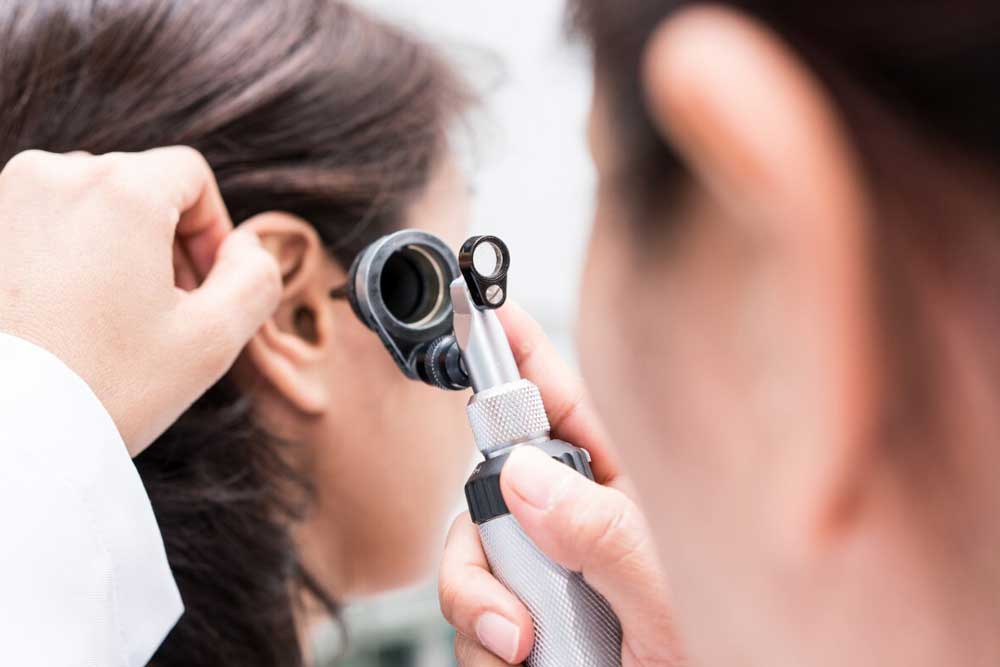Blog
Blog
What initial Coronavirus and hearing loss research shows

COVID-19: can the virus cause hearing loss?
Since the first cases of SARS-CoV-2 were reported in December 2019, there’s been a growing understanding of how this virus affects the body. For example, it was discovered that in addition to respiratory issues, symptoms of COVID-19 can include a loss of smell and taste. However, there are now a handful of studies and cases that suggest the virus might also affect hearing. Here’s what we know so far.
What initial Coronavirus and hearing loss research shows
A study published in the International Journal of Audiology in July 2020 reviewed the cases of 121 adults who were hospitalized in the United Kingdom with COVID-19 symptoms. In interviews conducted eight weeks after they were discharged, 16 of the patients (about 13 per cent) reported a change in their hearing or an onset of tinnitus since being diagnosed with COVID-19.
However, the study’s lead researcher cautions against generalizing these findings. The sample size was small, and many of the patients who reported changes in their hearing had comorbidities such as diabetes. These kinds of health issues increase the risk of severe symptoms and complications from COVID-19. What’s more, seven of the 16 patients also reported pre-existing hearing loss.
More recently, a pre-proof paper submitted to the peer-reviewed Journal of Otology in early 2021 details the results of audiometric tests performed on 60 patients with moderate-to-severe COVID-19 symptoms. None of the participants had a history of hearing abnormalities. The study found that the patients with COVID-19 had significantly worse hearing when compared to the control group, even after adjusting for age, gender and comorbidities.
Other cases and concerns
An increasing number of cases have documented changes in hearing among COVID-19 patients. For example, in BMJ Case Reports, researchers reported the case of a 45-year-old man who experienced sudden onset hearing loss and left-sided tinnitus while hospitalized for COVID-19 treatment. He didn’t have a history of hearing loss, and a week-long treatment of oral steroids resulted in only a partial improvement of his hearing.
A similar case reported in the Mayo Clinic Proceedings details the severe hearing loss experienced by a 60-year-old man who was hospitalized with COVID-19 pneumonia. An MRI showed signs of inflammation in the cochlea, which is a spiral-shaped bone in the inner ear. Researchers have noted that hairs on the cochlea responsible for processing sound vibrations are particularly vulnerable to damage caused by restricted oxygen and blood flow, which are among the complications reported in patients hospitalized with COVID-19.
More research for COVID-19 and hearing loss is needed
It’s common for viral infections that affect the upper respiratory tract to cause temporary hearing-related symptoms. Viruses such as the measles, mumps and meningitis are also known to cause hearing loss. However, it’s still too early to draw conclusions about the link between SARS-CoV-2 and hearing problems.
For one thing, several of the medications currently or previously used to treat patients with COVID-19 are ototoxic, which means they can cause damage to the ear. This makes it harder to determine whether hearing loss is the result of the infection or the treatment. In the Mayo Clinic Proceedings case, for example, the patient had received two medications with reported ototoxic effects during his treatment for COVID-19.
In addition, public health measures put in place to slow the spread of the virus, including wearing a face mask and standing two meters apart, can make it harder to hear others. Similarly, experts have suggested that changes to an individual’s environment, such as admission to a hospital and the use of face masks, can simply highlight a pre-existing hearing impairment. This was noted, among others, by the lead researcher of the United Kingdom study.
Some experts also suggest the fatigue experienced by COVID-19 patients, especially those with long-lasting symptoms, can make it hard to concentrate thereby making it more difficult to process speech. In short, much more research is needed, and hearing loss remains an uncommon occurrence among patients with COVID-19.
What to do if you experience hearing loss
If you experience sudden hearing loss, regardless of whether you currently or previously had COVID-19, report it to a medical professional as soon as possible. Early treatment is often the best way to prevent long-term symptoms and permanent damage. However, be sure to respect public health guidelines regarding self-isolation if you have symptoms or a confirmed case of COVID-19.
If you’ve found it harder to hear since the beginning of the pandemic because of physical distancing and the use of face masks, now might be a good time to schedule a complete hearing evaluation.
A hearing clinic you can count on
Soundwave Hearing Care provides audiological testing for people of all ages. We also offer comprehensive hearing aid services, including contactless pickup for new devices. If you experience hearing loss or listening difficulties, our dedicated team of audiologists and hearing aid practitioners can offer solutions that suit your needs. Contact us today to schedule an appointment in Calgary, Grande Prairie, High River or Lethbridge.
All the blogs are reviewed and edited by our clinic's lead audiologist, Dr. Anne Wooliams. Dr. Woolliams is an experienced audiologist specialized in pediatric audiology, auditory processing, and tinnitus/sound sensitivity therapy. She is dedicated to providing top-notch hearing care and helping her clients improve their language and communication abilities. Dr. Woolliams' expertise in literature and linguistics, combined with her passion for helping people improve their language and communication, make her an incredibly valuable asset in the field of audiology. Learn more about Dr. Woolliams.
